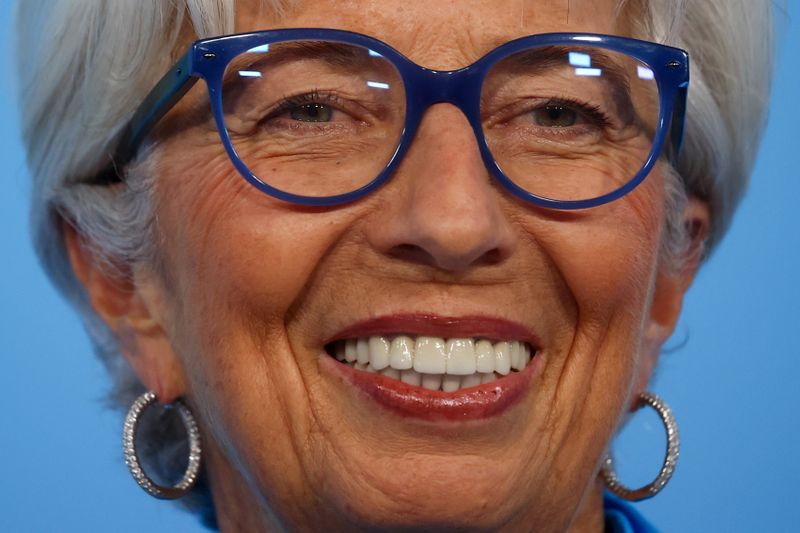Investing.com — European Central Bank president Christine Lagarde on Friday called for higher-for-longer interest rates to achieve the central bank’s key objective of bringing inflation back to its 2% target.
“In the current environment, this means – for the ECB – setting interest rates at sufficiently restrictive levels for as long as necessary to achieve a timely return of inflation to our 2% medium-term target,” Lagarde said Friday in a speech at the Jackson Hole symposium.
dropped to 5.3% annual rate in July, but that was still well ahead of the central bank’s 2% target.
Flexibility on monetary policy key for central banks
The ECB president also stressed the need for central banks to adopt “flexibility” on monetary policy, acknowledging that policy decisions can’t “exclusively rely on models that are estimated with old data,” or focus too much on current data as this is “likely to make monetary policy a reactive force rather than a stabilising one.”
Lagarde outlined that ECB’s reaction function was based on three criteria: the inflation outlook, the dynamics of underlying inflation and the strength of monetary policy transmission.
While this “multi-legged” approach would be needed to calibrate policy effectively, Lagarde says, there is also a need to enhance the process by updating forecasting technologies with “variables that act as the best leading indicators.”
Rising bets on ECB pause amid economic stumble
The ECB previously raised its rate by 25 basis points to 4.25% in July, taking rates to their highest level since 2000.
Some on Wall Street, however, have been betting that the central bank could pause rate hikes in September, and deliver a final hike in October.
The comments from Lagarde come just as data Friday showed ongoing signs of stuttering economic growth in the euro area.
Germany, the growth engine in the euro area, released a downbeat German Friday, showing sentiment among businesses deteriorated further, stoking fears of another recession in europe’s largest economy.
Read the full article here








